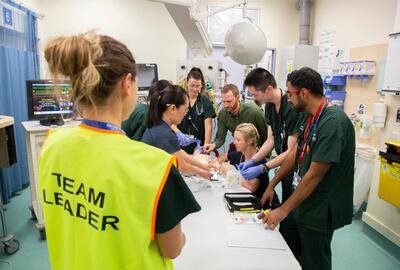Air New Zealand has yet again been voted as the most attractive employer in the 2019 Randstad Employer Brand Research. Making it the third consecutive year the airline has topped the list, and the sixth time in total. That’s a big thumbs up from Kiwis to the airline’s employer brand.
but what did it get right, and what are some of the trends that are attracting Kiwi job seekers in 2019?
Air New Zealand was recognised for its financial health, use of the latest technology and reliable reputation. Kiwis also perceived the nation’s favourite airline as having an attractive salary and benefits and a pleasant work atmosphere.
Public Sector organisations also performed well with the Department of Conservation (DOC) taking out second place and New Zealand Customs Service coming in third, its first time in the ‘top three’. DOC was recognised for giving back to society, interesting job content and having a good reputation. While NZ Customs was perceived for being financially healthy, providing job security and using the latest technologies.
Consistent with New Zealand’s results from last year, and perhaps surprising given the current focus on teacher shortages, Early Education is viewed as being the most attractive industry sector, followed by Tertiary Education in second place and Professional Services in third. Job security was the number one employee value attracting Kiwis when it came to Early Education, followed by a strong reputation and being financially healthy.
what do Kiwis want?
The research reveals what Kiwi employees most desire when it comes to looking for an employer.
Those values seen as the most attractive to employees in 2019 included:
- attractive salary and benefits (1)
- work-life balance (2)
- and a pleasant work atmosphere (3).
Salary is always high up within the research as a hygiene factor for most people - they expect to get paid well for their work. While the continued desire by Kiwi employees for work-life balance has grown as employees work outside of traditional work hours.
Our people want time back to focus and invest in themselves. It’s not flexible working, but work-life balance is giving people time back.
If we focus on retention, we see a need for work-life balance and a pleasant work atmosphere were in the top five reasons people stay with their employer.
so in a talent-short market, what can we do to attract and retain great people?
Organisations must understand what they are communicating to the market. Take the opportunity to focus on your strategic objectives and values and match them to what your target employee is seeking. We often know the skills of their target employee, but we sometimes forget to make sure the people align with those values.
At Randstad, we are improving our internal recruitment process, so the candidate experience is aligned with our customer experience and employee experience. We are reviewing on-boarding and induction processes to align with our strategic objects to ensure that we are setting our employees up for success, while also not forgetting that a smooth exit process is required to leave a positive employee experience intact.
This year we also researched the value of positive employee experiences.
why above traditional HR metrics of retention and attraction would an organisation want to invest in employee experience?
We know that investing in a positive employee experience delivers engaged people who go above and beyond for their employer. Employee experience overlaps with customer experience.
As 37% of respondents strongly agree that their jobseeker experience with a company would influence decisions to purchase a product or service.
This research highlights the need that New Zealand companies need to assess their employee experience critically as this can have a direct impact on a company’s bottom line.





